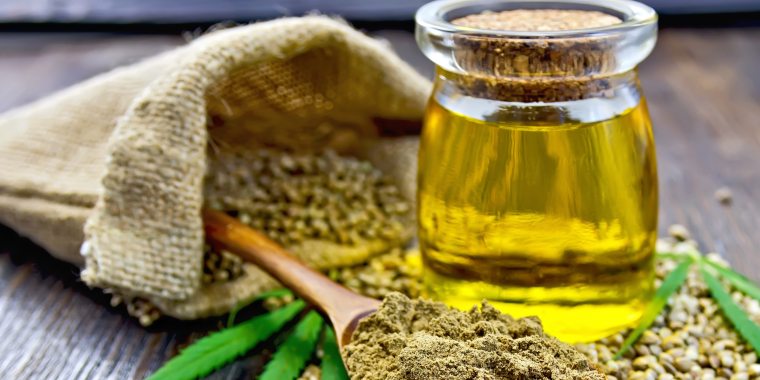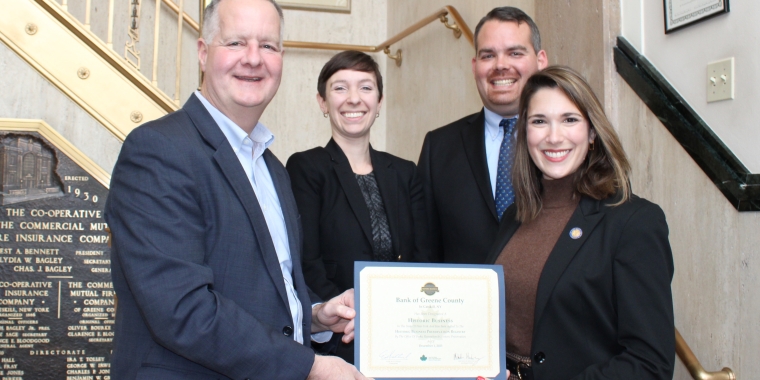Senator Michelle Hinchey Unveils Nation-Leading Legislation to Prioritize Industrial Hemp Packaging for Cannabis Products

ALBANY, NY – Today, State Senator Michelle Hinchey (SD-46) announced new legislation (S.7508) to establish New York as a national leader in the growth and production of biodegradable hemp-based packaging for products soon to emerge from the state’s cannabis industry. The Senate Agriculture Chair authored the bill with a focus on kickstarting an industrialized hemp industry that prioritizes environmental sustainability, delivers business opportunities for New York’s small farmers, and spurs economic development in upstate communities.
Hinchey’s bill directs the State’s Cannabis Control Board (CCB) to develop a plan that will place industrial hemp as the primary packaging source for all cannabis products made in New York State. The bill also tasks the Office of Cannabis Management (OCM) and Empire State Development (ESD) with creating the Sustainable Cannabis Packaging Incubator Program that would offer financial incentives to farmers and cannabis entrepreneurs who contribute to the development and use of hemp-based packaging materials.
"There is no other natural resource that offers the same environmental, agricultural, and economic potential as hemp. My bill will create a market, kickstarting the industry and moving New York State to the forefront in a way that will help us tackle the climate crisis, give our small farmers a competitive edge, and boost upstate economic development," said Senator Michelle Hinchey. “With my bill, we have an incredible opportunity to unleash the potential of biodegradable hemp-based products that slashes our use of plastics, incentivizes farmers and entrepreneurs to be part of this innovation stage, and propels an industry that has not reached even a fraction of its full potential. Environmentally-safe industrialized hemp is the future of manufacturing and I look forward to getting my bill passed in the 2022 session so that New York can lead the way in this emerging market.”
At a time when New York farms are struggling to remain profitable in a global marketplace, many farmers have looked to diversify what they grow and produce. Industrial hemp, which can be manufactured into tens of thousands of different products (building materials, textiles, paper, oil, fuel, and more) can provide a valuable commodity option for agricultural producers while providing significant benefit to New York’s economy and environment.
Unlike other crops, hemp can grow in most climates and on most farmland, requiring less water and no pesticides or herbicides. Three and a half times stronger than conventional plastics, hemp-derived composites can be used to replace materials previously made out of fossil fuel-based plastics — from car parts to furniture — and are completely biodegradable, taking as little as 3-6 months to decompose whereas petroleum-based plastics take over 400 years.
Central to Hinchey’s agenda for 2022 is jumpstarting the industrialized hemp market in New York State to strengthen local economies and allow new businesses to flourish in communities across the state, especially in rural and upstate areas where hemp would be grown. Hinchey’s bill to prioritize hemp as the main packaging source for cannabis products provides a conduit to increase demand for the commodity while supporting struggling farmers and helping New York meet its climate mitigation goals. Hinchey has placed S.7508 among her top priorities for the 2022 state legislative session and will work to secure the bill’s passage when the Legislature convenes in January.
Senator Michelle Hinchey represents the 46th Senate District, which includes Greene and Montgomery Counties and parts of Albany, Schenectady, and Ulster Counties. Senator Hinchey serves as Chair of the Agriculture Committee and sits on the Alcoholism and Substance Abuse, Commerce, Economic Development and Small Business, Cultural Affairs, Tourism, Parks and Recreation, Energy and Telecommunications, Environmental Conservation, and Local Government Committees.
###



